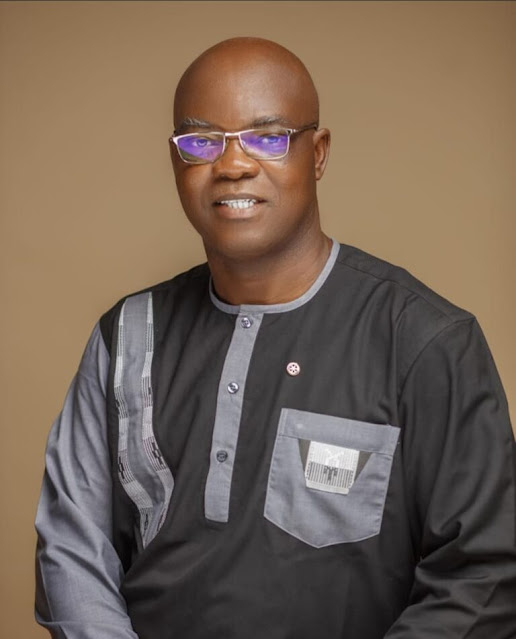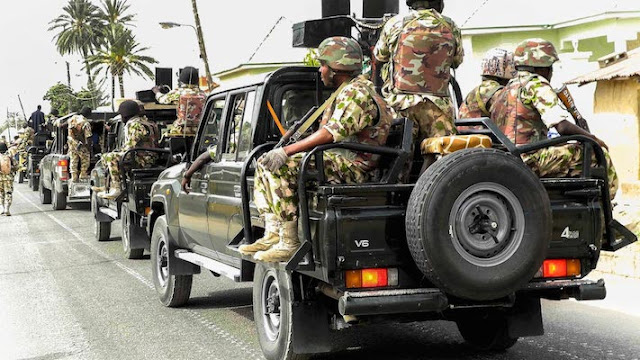In a historic milestone for Nigeria and Africa, Engineer Olayinka Hakeem Babalola has been elected as the President of Rotary International for the 2026/2027 calendar year. A distinguished member of the Rotary Club of Trans Amadi, Nigeria, Babalola was chosen by the Rotary International Board of Directors following the resignation of SangKoo Yun on health grounds. Set to assume office on July 1, 2026, Babalola becomes only the second African and Nigerian to hold this prestigious position in the 120-year history of the global humanitarian organization. His election is a testament to his decades of service, leadership, and commitment to advancing peace, progress, and human dignity, both within Nigeria and on the international stage.
The announcement, made on August 29, 2025, has sparked widespread celebration in Nigeria, with President Bola Ahmed Tinubu leading the chorus of congratulations. In a statement, Tinubu described Babalola’s elevation as a reflection of his exemplary contributions through the Nigerian Society of Engineers (NSE) and Rotary International, as well as his impactful philanthropic initiatives. The President hailed Babalola as an inspiration to millions, particularly Nigeria’s youth, demonstrating that vision, integrity, and dedication can propel individuals to global leadership. As Babalola prepares to take on this monumental role, his election underscores Nigeria’s growing influence in global humanitarian efforts and serves as a beacon of hope for a continent striving for transformative change.
A Journey of Service and Leadership
Engineer Olayinka Hakeem Babalola’s path to the presidency of Rotary International is a story of resilience, excellence, and unwavering commitment to service. A seasoned engineer and a prominent member of the Nigerian Society of Engineers, Babalola has built a reputation as a visionary leader whose work has left an indelible mark on communities across Nigeria. His involvement with Rotary International, particularly through the Rotary Club of Trans Amadi in Port Harcourt, has been characterized by a deep dedication to the organization’s core values: service above self, fellowship, integrity, diversity, and leadership.
Rotary International, founded in 1905 in Chicago, Illinois, is a global network of 1.4 million members across more than 46,000 clubs in over 200 countries. The organization is renowned for its humanitarian efforts, including eradicating polio, promoting peace, improving education, and supporting community development. Babalola’s election as president places him at the helm of this influential organization, tasked with leading its global initiatives during a critical period marked by economic, social, and environmental challenges.
Babalola’s rise within Rotary International reflects his long-standing commitment to the organization’s mission. As a member of the Rotary Club of Trans Amadi, he has spearheaded numerous projects that have empowered communities, from providing clean water and sanitation facilities to supporting education and healthcare initiatives. His leadership within the Nigerian Rotary community has earned him respect as a bridge-builder who combines technical expertise with a passion for social impact. His election to the presidency follows years of service in various leadership roles within Rotary, including positions at the district and regional levels, where he demonstrated an ability to unite diverse stakeholders and drive meaningful change.
A Historic Milestone for Nigeria and Africa
Babalola’s election is a historic moment, not only for Nigeria but for the entire African continent. As the second African and Nigerian to lead Rotary International, he follows in the footsteps of Jonathan Majiyagbe, who served as president in 2003/2004. Majiyagbe’s tenure was a landmark achievement, proving that Africans could ascend to the highest echelons of global leadership. Babalola’s election, coming 23 years later, reinforces this legacy and highlights the growing influence of African leaders in shaping the global humanitarian agenda.
Nigeria, Africa’s most populous nation and a hub of cultural and economic dynamism, has long sought to assert its presence on the global stage. Babalola’s election is a powerful symbol of this ambition, showcasing the country’s capacity to produce leaders who can inspire and lead transformative change. His background as an engineer aligns with Nigeria’s aspirations to leverage science, technology, and innovation to address pressing challenges, from infrastructure deficits to climate change. His leadership in Rotary International will provide a platform to amplify Nigeria’s contributions to global development, particularly in areas like education, healthcare, and peacebuilding.
The significance of Babalola’s election extends beyond Nigeria to the broader African continent. Africa has faced systemic challenges, including poverty, conflict, and underdevelopment, but it is also a continent of immense potential, with a youthful population and a growing tech ecosystem. Rotary International’s work in Africa, from polio eradication campaigns to water and sanitation projects, has had a transformative impact, and Babalola’s presidency offers an opportunity to deepen these efforts. His leadership will likely focus on addressing Africa-specific challenges while promoting the continent’s contributions to global solutions.
President Tinubu’s Endorsement and National Pride
President Bola Ahmed Tinubu’s congratulatory message to Babalola reflects the national pride surrounding this achievement. In his statement, Tinubu described Babalola’s election as a “testament to his years of service through the Nigerian Society of Engineers and Rotary International, his laudable philanthropic initiatives, and relentless pursuit of projects that have impacted lives, strengthened communities, and advanced peace, progress, and human dignity.” The President’s words underscore the alignment between Babalola’s values and Nigeria’s broader aspirations for development and global recognition.
Tinubu also highlighted the inspirational impact of Babalola’s election on Nigeria’s youth. With over 60% of Nigeria’s population under the age of 30, the country faces both opportunities and challenges in harnessing the potential of its young people. Youth unemployment, limited access to quality education, and social unrest have been persistent issues, but leaders like Babalola serve as role models, demonstrating that hard work, integrity, and service can lead to global acclaim. “Babalola’s election will inspire millions of Nigerians, especially the younger generation, by demonstrating that anyone can achieve global recognition and lead transformative change with vision, integrity, and dedication to service,” Tinubu noted.
The President’s assurance of support—“As you prepare to assume office, you can count on our support and encouragement to continue championing humanitarian causes, fostering international partnerships, and promoting the spirit of service to humanity”—signals Nigeria’s commitment to backing Babalola’s leadership. This support could manifest in various forms, from diplomatic endorsements to collaboration on Rotary projects within Nigeria. Tinubu’s message also reflects the government’s recognition of the soft power that comes with having a Nigerian at the helm of a global organization like Rotary International.
Babalola’s Vision and Challenges Ahead
As Babalola prepares to assume office on July 1, 2026, he faces the daunting task of leading Rotary International during a period of global uncertainty. The world is grappling with challenges such as climate change, economic inequality, geopolitical tensions, and the lingering effects of the COVID-19 pandemic. Rotary International’s mission to promote peace, fight disease, provide clean water, support education, grow local economies, protect the environment, and save mothers and children aligns with these global priorities, but achieving meaningful impact requires strategic leadership and resource mobilization.
Babalola’s background as an engineer equips him with a unique perspective on addressing some of these challenges. His expertise in infrastructure development and project management could inform Rotary’s efforts to deliver sustainable solutions, particularly in areas like clean water and sanitation, where technical know-how is critical. His experience in Nigeria, a country with complex developmental needs, also positions him to advocate for tailored solutions that address the specific challenges faced by developing nations.
One of Babalola’s key priorities will likely be advancing Rotary’s flagship initiative: the global campaign to eradicate polio. Since 1988, Rotary International, in partnership with organizations like the World Health Organization and the Bill & Melinda Gates Foundation, has reduced polio cases by 99.9%, but the disease remains endemic in a few countries. Nigeria, which was declared polio-free in 2020, serves as a success story in this effort, and Babalola’s leadership could further strengthen Rotary’s work in this area.
Another focus area will be promoting peace and conflict resolution, a core pillar of Rotary’s mission. Nigeria’s own history of ethnic and religious tensions, as well as ongoing security challenges in regions like the Northeast, gives Babalola firsthand insight into the importance of peacebuilding. His presidency offers an opportunity to elevate Africa’s voice in global peace initiatives, fostering dialogue and collaboration across diverse cultures.
Babalola will also need to navigate the internal dynamics of Rotary International, a diverse organization with members from varying cultural, economic, and political backgrounds. Building consensus and inspiring action across 46,000 clubs will require diplomatic skill and a unifying vision. His experience in Nigeria, a country known for its diversity and complexity, will serve him well in this regard.
The Broader Implications for Nigeria and Africa
Babalola’s election carries profound implications for Nigeria’s global image. In recent years, Nigeria has faced criticism for issues like corruption, insecurity, and economic challenges, which have sometimes overshadowed its achievements. The election of a Nigerian to lead Rotary International counters these narratives, showcasing the country’s potential to produce world-class leaders. It also aligns with Nigeria’s efforts to promote its cultural and intellectual contributions through initiatives like the creative industry and tech ecosystem.
For Africa, Babalola’s presidency is a moment of pride and opportunity. The continent has often been underrepresented in global leadership roles, and his election challenges stereotypes about African capacity. It also provides a platform to advocate for increased investment in Africa’s development, from infrastructure to education and healthcare. By leveraging Rotary’s global network, Babalola can foster partnerships that drive sustainable progress across the continent.
The election also highlights the importance of organizations like Rotary International in addressing global challenges. Unlike governments or corporations, Rotary operates on the principle of volunteerism, with members contributing their time, resources, and expertise to improve lives. Babalola’s leadership will amplify this ethos, encouraging more Nigerians and Africans to engage in community service and global citizenship.
Challenges and Opportunities in Nigeria’s Context
Within Nigeria, Babalola’s election comes at a time of significant challenges and opportunities. The country is grappling with economic hardship, driven by inflation, currency devaluation, and the lingering effects of fuel subsidy removal. Security issues, including banditry and insurgency, continue to threaten stability, while infrastructure deficits and youth unemployment remain pressing concerns. Babalola’s presidency offers an opportunity to align Rotary’s resources with Nigeria’s needs, from supporting education initiatives to providing clean water and healthcare in underserved areas.
At the same time, Nigeria’s vibrant youth population and growing tech sector present opportunities for innovation and collaboration. Babalola’s leadership could inspire Rotary clubs in Nigeria to partner with tech startups, educational institutions, and government agencies to drive impact. For instance, initiatives like digital literacy programs or entrepreneurship training could empower young Nigerians to contribute to the country’s development.
A Legacy in the Making
As Engineer Olayinka Hakeem Babalola prepares to take on the presidency of Rotary International, he carries the hopes and aspirations of millions of Nigerians and Africans. His election is a testament to the power of service, integrity, and dedication, qualities that have defined his career as an engineer and Rotarian. It is also a reminder of the potential for individuals to effect change, regardless of the challenges they face.
President Tinubu’s wish for “a successful tenure and renewed strength in his service to humanity” encapsulates the collective goodwill surrounding Babalola’s leadership. His presidency will be an opportunity to build on Rotary’s legacy while charting a new course for global humanitarian efforts. By championing causes like polio eradication, peacebuilding, and sustainable development, Babalola can leave a lasting impact on the world.
For Nigeria’s youth, Babalola’s story is a powerful reminder that global recognition is within reach. His journey from the Rotary Club of Trans Amadi to the presidency of Rotary International demonstrates that dedication to service can open doors to extraordinary opportunities. As he assumes office on July 1, 2026, Babalola will carry the mantle of leadership with pride, inspiring a new generation to dream big and serve selflessly.
Conclusion
Engineer Olayinka Hakeem Babalola’s election as President of Rotary International for the 2026/2027 term is a historic achievement that reverberates across Nigeria, Africa, and the world. His rise to this prestigious position reflects his decades of service, leadership, and commitment to improving lives. As the second African and Nigerian to lead Rotary International, Babalola embodies the potential for Africans to shape the global agenda.
With the support of President Tinubu and the Nigerian people, Babalola is poised to lead Rotary International into a new era of impact, addressing global challenges while amplifying Africa’s voice. His presidency will be a defining moment for Nigeria, showcasing the country’s capacity to produce leaders who inspire and transform. As Babalola prepares to take office, his story serves as a beacon of hope, reminding us that service above self can change the world, one community at a time.






